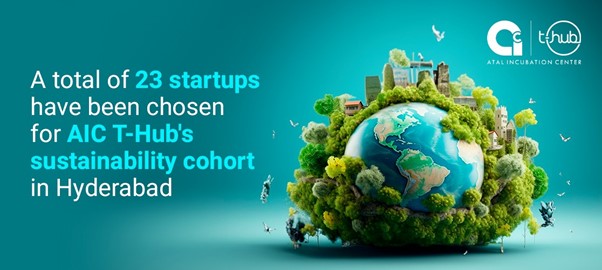India stands at a pivotal juncture, poised to leverage its demographic dividend and expanding middle class to become a global manufacturing powerhouse. Over the past decade, favourable demographic trends have created a large, skilled workforce ready to fuel industrial growth. An expanding tax-
paying population with growing disposable income presents a compelling opportunity for domestic consumption and investors seeking to capitalise on India’s manufacturing potential.
India’s manufacturing sector is primed for a surge on the back of supportive initiatives like the PLI scheme and subsidised land. Incubators integrate cutting-edge technologies into sectors like auto, mobility, apparel etc. The confluence of demographic advantage, government impetus and disruptive innovation paves the way for a boom in Indian manufacturing. It isn’t just a forecast; it’s a tangible possibility fuelled by the disruptive spirit of startups.
Estimates suggest that India’s exports in manufacturing will surge from US$ 250 billion to nearly US$ one trillion within the next six years. The trajectory is reinforced by the international geopolitical scenario, marked by the relocation of manufacturing away from China. Many companies seek a “+1”
strategy, with Taiwan and Vietnam emerging as primary beneficiaries. However, India, with its high population of skilled labour and an annual output of four million graduates, is a key contender for future manufacturing growth.

Incubators driving the change
It’s imperative to explore the role of incubators in fostering manufacturing startups which are leading the charge in Industry 4.0 leveraging AI, IoT, and robotics. Their agile, cost-effective solutions can empower businesses worldwide to adapt, innovate, and compete in the fast-paced digital era. They
are crafting the future with AI-powered logistics optimising supply chains and 3D printing enabling on-demand production closer than ever.
The startup incubators nurture aspiring manufacturing entrepreneurs. It provides a catalysing space for them to ideate and transform those ideas into solutions. Incubators offer more than just R&D support. They connect these young innovators with established manufacturers to use the solutions
for real-world manufacturing challenges. They champion the crucial leap from invention to efficient mass production. By infusing cutting-edge technologies and innovative strategies, they bridge the gap between ground-breaking ideas and real-world scalability. They help shape a future where India is not only producing goods but also pioneering the tools and techniques that define modern manufacturing.
Catalysts as consultative partners
Incubators contribute significantly to reducing capital and human intensity, offering a fresh perspective on how manufacturing can be approached. Beyond cost-efficiency, a notable shift in mindset is observed among manufacturers. CXOs and CDOs are increasingly recognising the transformative potential of startup collaborations. According to PWC Global CEO Survey 2023, 88 per cent of CEOs believe open innovation partnerships, including with startups, are critical for success.
Consider the teaming up of one of India’s largest tyre manufacturers Apollo Tyres, a household name in the industry with multiple young startups facilitated by T-Hubs. Beyond the immediate gains, this partnership sparks a broader conversation about collaborative innovation, where established players embrace fresh perspectives and disruptive technologies.
Fostering inclusive growth
Beyond giants, incubators empower smaller players and marginalised communities. Small and medium-sized enterprises (SMEs) often face resource constraints and limited access to cutting-edge technologies. Incubators bridge this gap, offering affordable solutions and knowledge exchange. This
helps an equitable access to latest machinery and improve operational efficiency with AI-powered tools that optimise production. Incubators are well positioned to help such manufacturing units reduce their operational costs thereby giving them a competitive edge. It is the power of democratised innovation, where incubators empower both large and even smaller players to compete globally.
Marginalised communities, skilled artisans and craftspeople, face significant challenges in accessing markets and scaling their businesses. Incubators step in as facilitators, building online marketplaces that connect these communities with a global audience.
The impact of incubators on smaller players and marginalised communities creates a ripple effect, strengthening the entire manufacturing ecosystem. As SMEs thrive, they create new jobs and contribute to regional development. Communities, empowered by economic independence, become active participants in the value chain, enriching the diversity and cultural vibrancy of Indian manufacturing.
The bottom-line is, India’s manufacturing sector is poised for substantial growth across the manufacturing stack which is driven by a burgeoning population, increased disposable income, and geopolitical shifts favouring the nation. Initiatives like Make in India, streamlined business processes,
and PLI schemes ignite the ecosystem for dynamic startups. As these agile innovators play a pivotal role in this transformation, there is a pressing need to encourage and support innovative ventures in the manufacturing domain, ensuring India’s ascent as a manufacturing powerhouse in the global arena.







